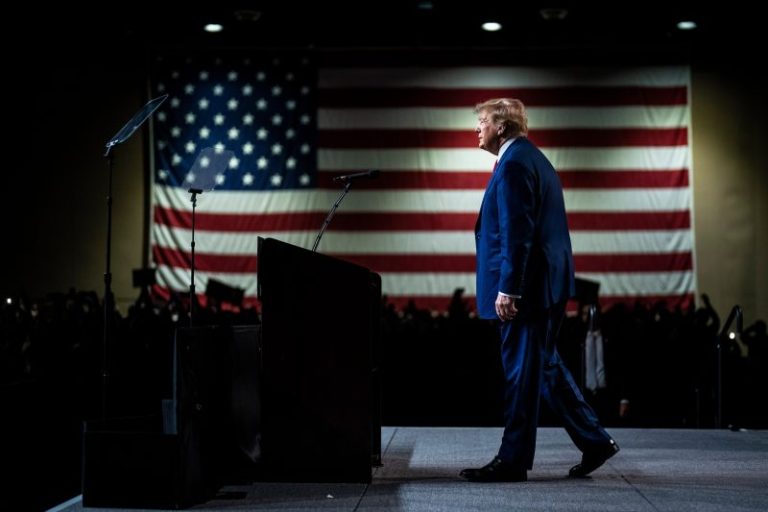On Tuesday, Nevada will hold a Republican presidential primary. Two days later, the state GOP will host Republican presidential caucuses — with a different set of candidates competing. Confusing? Yes. Here’s how we got there and what will actually matter.
After decades of holding sparsely attended caucuses, which sometimes got messy, and chaotic, Nevada legislators passed a law in 2021 requiring primary elections whenever there was more than one candidate on the ballot. After more than a dozen candidates launched campaigns for the 2024 Republican presidential nomination, Nevada officials scheduled a Republican primary for Tuesday.
But that 2021 law contained a big loophole.
“There has to be a primary, but the law doesn’t say how the party allocates their delegates” that will count toward determining the winner of the Republican presidential nomination, Rebecca Gill, a political science professor at the University of Nevada at Las Vegas, said.
That omission, combined with the intense lobbying of Nevada GOP leaders by former president Donald Trump, has led to a unique, and perhaps bewildering, scenario: Nevada this week will hold a state-run primary and party-run caucuses.
The Nevada GOP said it will award its 26 delegates to whomever wins the caucuses, in which Trump is competing against a little-known pastor from Texas, Ryan Binkley.
The only other major candidate still challenging Trump for the GOP nomination, former U.N. ambassador Nikki Haley, is running in the primary but not taking part in the caucuses. Trump, meanwhile, will not appear on the primary ballot.
The dual system came about after Trump wooed Nevada GOP leaders, who announced in August they were essentially ignoring the state-run primary and holding caucuses, with rules seemingly designed to favor Trump.
To be considered at the caucuses, candidates had to pay a $55,000 participation fee. Money from outside groups — like Never Back Down and Fight Right, which helped Florida Gov. Ron DeSantis’s presidential candidacy — cannot be used to influence caucus-goers, the Nevada GOP said. And any candidate running in the primary could not be considered in the caucuses, the party leaders said.
“It’s very clear this is set up to support Mr. Trump,” Gill said.
Trump, naturally, chose to run in the caucuses. And Haley long ago opted to run in the primary, as did several other major candidates, including former vice president Mike Pence and Sen. Tim Scott (R-S.C.), before they ended their campaigns.
Trump is all but guaranteed to sweep the caucuses.
He won the Nevada caucuses in 2016 with nearly 46 percent of the vote, well ahead of his nearest competitors, Sens. Marco Rubio (R-Fla.) and Ted Cruz (R-Tex.).
But Haley is not necessarily guaranteed to win the primary, according to Gill.
That is because in Nevada presidential primaries, voters have an option to prefer “none of these candidates.” The Nevada GOP is encouraging people to cast such a vote to blunt any possible Haley momentum.
“We just really don’t know how this is going to shake out,” Gill said.

